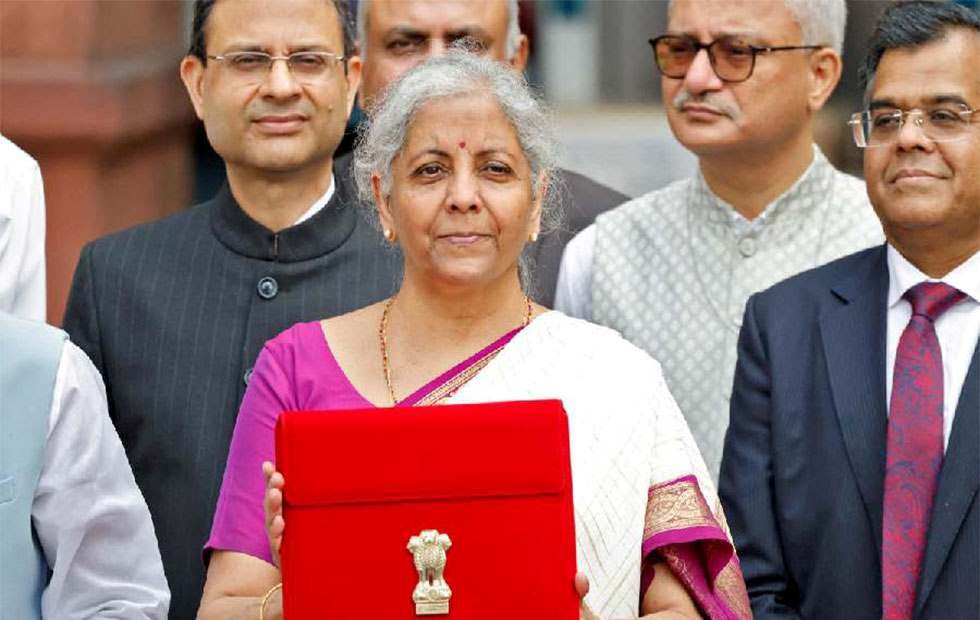
The Union Budget is one of the most anticipated financial statements in India, outlining the government’s plans for economic growth, social welfare, and corporate governance. The Budget 2025-26 has significant implications for Corporate Social Responsibility (CSR) initiatives, affecting how companies allocate their CSR funds and contribute to national development. In this article, we will analyze key provisions of the budget from a CSR perspective and explore how they impact businesses, NGOs, and communities.
Increased Allocation for Social Sectors
One of the highlights of Budget 2025-26 is the increased allocation for healthcare, education, and rural development. These sectors align closely with CSR objectives, offering companies new opportunities to collaborate with the government and amplify their impact.
For instance, the budget has raised funding for the National Education Mission by 15%, emphasizing skill development programs. Companies in the IT and manufacturing sectors can partner with vocational training institutes to bridge the skill gap among India’s youth, ensuring job-ready graduates.
A practical example is how companies like Tata Consultancy Services (TCS) and Infosys have been running skillbuilding programs for underprivileged students, preparing them for employment in the digital economy.
Budget Highlights
Income Tax Relief for Middle-Class Households
- No income tax on monthly earnings up to ₹1 lakh, boosting savings and consumption.
- Salaried individuals in the new tax regime to pay zero tax on annual income up to ₹12.75 lakh.
Key Drivers of Economic Growth Recognized
- The budget identifies four engines of development: Agriculture, MSMEs, Investment, and Exports. Agricultural Reforms & Farmer Benefits
- ‘PM Dhan-Dhaanya Krishi Yojana’ to benefit 1.7 crore farmers and improve productivity in 100 low-yield districts.
- ‘Mission for Aatmanirbharta in Pulses’ to focus on increasing production of Tur, Urad, and Masoor dal.
- Loans up to ₹5 lakh available through Kisan Credit Card (KCC) under a revised interest subvention scheme.
Fiscal Management & Deficit Reduction
- FY-25 fiscal deficit estimated at 4.8%, with a target to lower it to 4.4% in FY-26.
Support for MSMEs & Manufacturing Sector
- Credit guarantee cover for MSMEs increased from ₹5 crore to ₹10 crore.
- A National Manufacturing Mission to promote small, medium, and large industries under the “Make in India” initiative.
Education & Technology Advancements
- 50,000 Atal Tinkering Labs to be set up in government schools over the next five years.
- A Centre of Excellence in Artificial Intelligence for education with a ₹500 crore budget.
Empowering Street Vendors & Gig Workers
- PM SVANidhi scheme enhanced with higher loan limits and UPI-linked credit cards with ₹30,000 limits.
- Gig workers to receive identity cards, registration on the e-Shram portal, and healthcare under PM Jan Arogya Yojana.
Urban Development & Infrastructure
- ₹1 lakh crore Urban Challenge Fund to develop cities as economic growth hubs.
- Modified UDAN scheme to improve regional air connectivity to 120 new destinations.
Energy & Innovation Investments
- ₹20,000 crore allocated for Small Modular Reactor R&D under the Nuclear Energy Mission.
- ₹15,000 crore SWAMIH Fund to fast-track completion of 1 lakh stressed housing units.
- ₹20,000 crore set aside for private-sector-driven research, development, and innovation initiatives.
Cultural & Historical Preservation
- ‘Gyan Bharatam Mission’ to survey and conserve over one crore manuscripts.
Insurance & Business Reforms
- FDI cap in the insurance sector raised from 74% to 100%.
- Jan Vishwas Bill 2.0 to decriminalize over 100 provisions in various laws.
Taxation & Compliance Ease
- Updated income tax return filing period extended from 2 to 4 years.
- Late payment of TCS decriminalized.
- TDS on rent threshold raised from ₹2.4 lakh to ₹6 lakh.
Customs & Trade Policy Adjustments
- Basic customs duty (BCD) removed on 36 life-saving drugs and medicines for cancer and rare diseases.
- BCD on Integrated Flat Panel Displays (IFPDs) increased to 20%, but reduced to 5% for open cells.
- Exemption on BCD for parts of open cells to promote domestic manufacturing.
- Additional capital goods for EV and mobile battery manufacturing exempted to boost battery production.
- 10-year BCD exemption on raw materials and components used in shipbuilding.
- BCD reduced from 30% to 5% on frozen fish paste and from 15% to 5% on fish hydrolysate.
CSR and Healthcare
With the government’s commitment to improving healthcare infrastructure, CSR funding can play a pivotal role in strengthening medical facilities in underserved regions. The budget has introduced tax incentives for companies investing in telemedicine and digital health initiatives. This is a significant boost for organizations looking to enhance healthcare access through technology.
A real-world example is the Apollo Foundation, which has leveraged CSR funds to set up mobile medical units in remote areas. With the new budget provisions, more companies can follow suit, ensuring better healthcare access for rural populations.
Environmental Sustainability and CSR
Sustainability is another key focus of Budget 2025-26. The government has introduced incentives for businesses investing in renewable energy and waste management projects. The revised CSR guidelines now encourage companies to support green initiatives such as solar power adoption and water conservation.
For example, companies like ITC have been investing heavily in water conservation projects, helping farmers adopt sustainable irrigation practices. With new budget incentives, more businesses can integrate environmental projects into their CSR strategies, fostering longterm ecological benefits.

MSME and Women Entreneurship Support
The government has also announced special financial packages for Micro, Small, and Medium Enterprises (MSMEs) and women entreneurs. Large corporations can use their CSR budgets to mentor and support small businesses through incubation programs, grants, and training sessions.
Take the case of Hindustan Unilever, which has been supporting women entreneurs in rural areas through its Project Shakti initiative. By training women to become directto- home sales agents, the company has empowered thousands of households. With the budget emphasizing women-led businesses, similar CSR initiatives can be expanded to benefit more communities.
While the Budget 2025-26 has introduced several positive measures for CSR, challenges remain. Some companies struggle with proper CSR implementation due to bureaucratic delays and lack of awareness about new policies. To address this, businesses must engage with policy experts and industry forums to stay informed about evolving CSR regulations.
Additionally, collaboration between corporates, NGOs, and the government is essential to maximize impact. Creating public-private partnerships (PPPs) for CSR initiatives can lead to better resource utilization and long-term sustainability. The Union Budget 2025-26 presents a strong foundation for CSRdriven development in India. By aligning corporate initiatives with national priorities, businesses can contribute to meaningful social change. Whether through education, healthcare, environmental sustainability, or entreneurship support, CSR remains a powerful tool for corporate India to give back to society. With strategic planning and collaboration, companies can ensure that their CSR efforts create lasting impact.



















